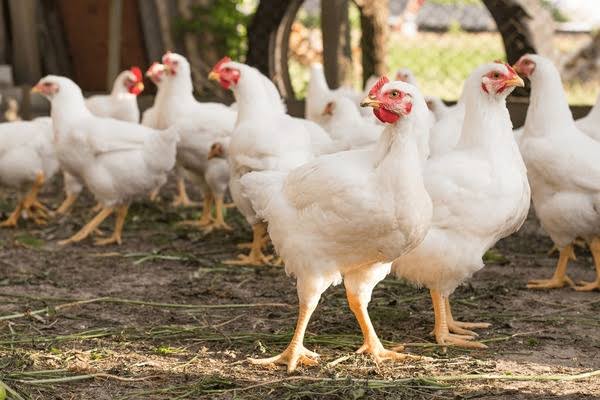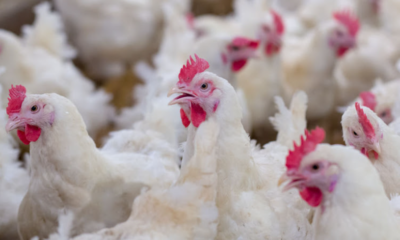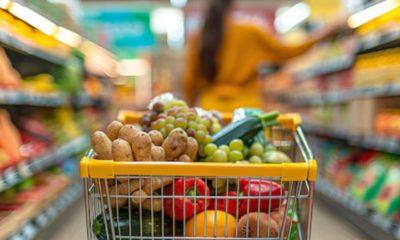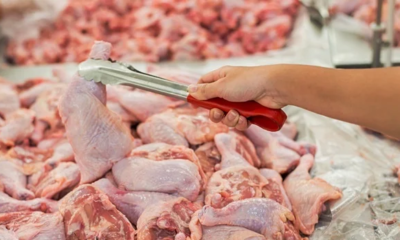News
South Africa Unlikely to Face Chicken Shortage Despite Global Bird Flu Outbreaks

While outbreaks of bird flu are rattling poultry industries around the globe, South African consumers can breathe easy – the country is not facing a chicken shortage any time soon.
According to the South African Poultry Association (SAPA), the local industry is well-prepared to weather the impact of recent global disruptions, particularly the outbreak of avian influenza in Brazil, one of South Africa’s top poultry importers.
“We are confident that there will be no shortage of chicken meat,” said Izaak Breitenbach, CEO of SAPA’s Broiler Organisation. “Our local production has the flexibility and capacity to meet demand, even if imports drop.”
Homegrown Production Keeps Shelves Stocked
South Africa’s poultry industry is massive – a R65 billion powerhouse employing nearly 58,000 people. The country slaughters an average of 21.5 million chickens every week, with the ability to increase that to 22.5 million birds if needed.
Since winter typically sees a dip in chicken consumption, the current surplus means local shelves will remain well-stocked without major price hikes, SAPA assured.
Brazilian Imports: Limited Impact on Your Dinner Plate
Brazil supplies roughly 18% of South Africa’s total poultry imports, but most of that isn’t the kind of chicken you’d roast at home.
More than 60% of Brazil’s poultry exports to South Africa are mechanically deboned meat (MDM), a paste used in processed products like polony and sausages. Bone-in portions like wings and leg quarters – commonly eaten in South African households – make up just a small fraction (4.5%) of these imports.
SAPA clarified that any disruptions would primarily affect processed meat producers, not everyday shoppers looking for frozen drumsticks or chicken breasts.
Shifting Trade Winds and Local Industry Pressure
While overall chicken imports have risen slightly from 2023 to 2024, this increase is tied to MDM and offal, which don’t carry import tariffs. At the same time, imports of bone-in cuts have actually decreased.
Argentina, which is currently exempt from anti-dumping duties, has become a key supplier of cheap chicken to South Africa, making things tougher for local farmers. Imports from Europe – including the UK and Hungary – have dropped due to widespread bird flu outbreaks in those regions.
However, opportunities for South African exports are on the rise. Upcoming inspections by the UK and Saudi Arabia could open up new markets for locally produced cooked chicken products.
Making Chicken More Affordable
In a bid to support both consumers and producers, SAPA has proposed that the government scrap VAT on frozen chicken cuts and offal. This move could ease grocery bills for lower-income families while supporting the local industry’s efforts to provide affordable protein.
Still Recovering From 2023’s Bird Flu Devastation
The South African poultry sector is still bouncing back from the severe HPAI outbreak in 2023, which led to the culling of over 9.6 million birds and losses exceeding R9.5 billion. The crisis sent egg prices soaring and severely impacted production.
While three H5 bird flu vaccines have been approved for import, the rollout of a vaccination programme remains stalled. Testing requirements and the lack of a suitable vaccine for the local H7 strain are delaying wider adoption.
Despite bird flu causing havoc abroad and raising red flags over imports, South Africa’s poultry industry says there’s no reason to panic. Local production is strong, supply chains are holding, and prices are expected to stay stable – at least for now.
{Source: IOL}
Follow Joburg ETC on Facebook, Twitter , TikTok and Instagram
For more News in Johannesburg, visit joburgetc.com



























